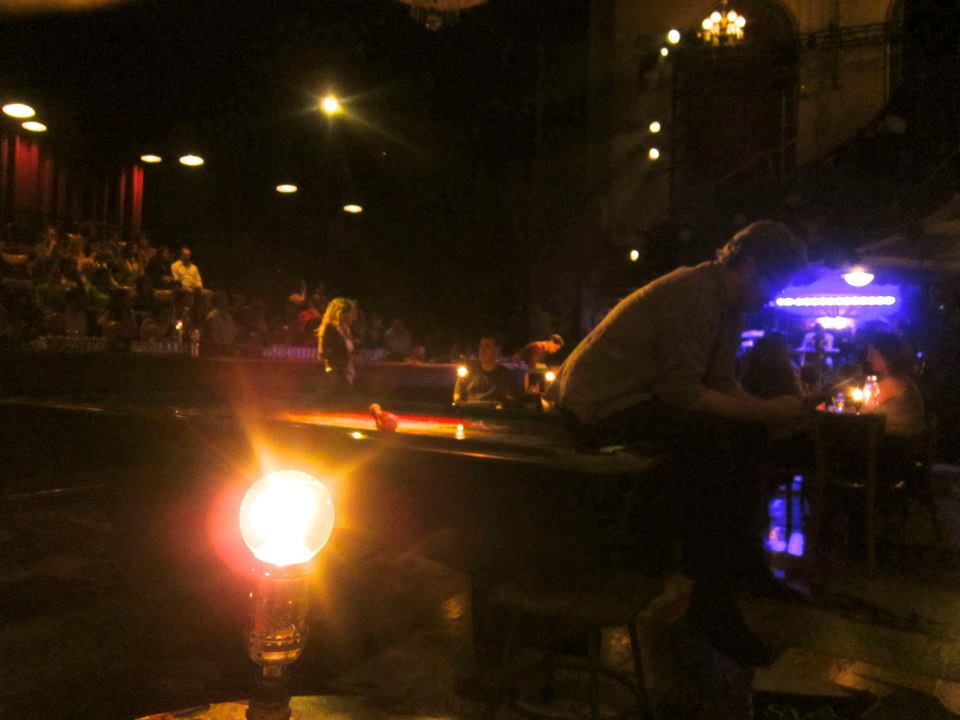The transition into theatrical time is seamlessly accomplished at the start of MURDER BALLAD. I was taking in the scene, watching the couples at the tables, the bartender cleaning off the counter, the waiters circulating, when I suddenly noticed in one of the pre-show photos that I was snapping that someone was sitting on the pool table reading a book and someone else had perched herself at the bar, that, in other words, it was time to click off the camera and settle in for the show.
Environmental theater, a technique transposed from fairground and carnival into the theater proper, has long ceased to feel experimental: it is everywhere these days. From Sleep No More in Manhattan to Then She Fell in Brooklyn, it retains its edgy feel but has in fact been totally mainstreamed. MURDER BALLAD at the Union Square Theatre ups the environmental ante a bit with a resonant full surround sound system; the music and the voices resound in every crevice of the space (there is no more than a smidgen of spoken dialogue and even that is done to music). Everything I observed from the audience as a whole suggested that this was well-received, and it was certainly involving, although I personally thought that in lacking a clear directionality the voices were effectively disconnected from the performers, not always, but far too often.
This isn’t a problem unique to MURDER BALLAD. Even the much lighter “vocal enhancement” that is all too common on our stages creates something of this effect, and I don’t think it’s healthy, as what it caters to is the two-pronged notion that (a) there is nothing to be gained by expecting an audience to have to listen and pay close attention, and that (b) the performer doesn’t have to figure out how to get the viewer to listen closely – the technology will ensure audibility (but not focus – which it actively works against). Granted, amplified sound has an aesthetic of its own that can be harnessed, the “microphone singing” of a great jazz artist, or stadium sized rock, or electronica. And it is only fair to acknowledge that MURDER BALLAD is in many ways justifiable in those terms. It should also be said that it lends great drama to the single moment of pure silence that we are granted.
The cast is certainly splendid and the energy is impossible not to be pulled into; the story is simple enough to follow even as the words are swallowed up (ballads, after all, were once a news form whose forte was the tabloidization of sensational crimes). This one is about an Upper East Side woman who goes slumming downtown and gets caught up in one fatal triangle that overlaps with another one. MURDER BALLAD was worth going to for the sheer verve of the experience, even though at the end of the day I was more bothered by its lacks than wowed by its virtues.
For more on MURDER BALLAD, click here.
